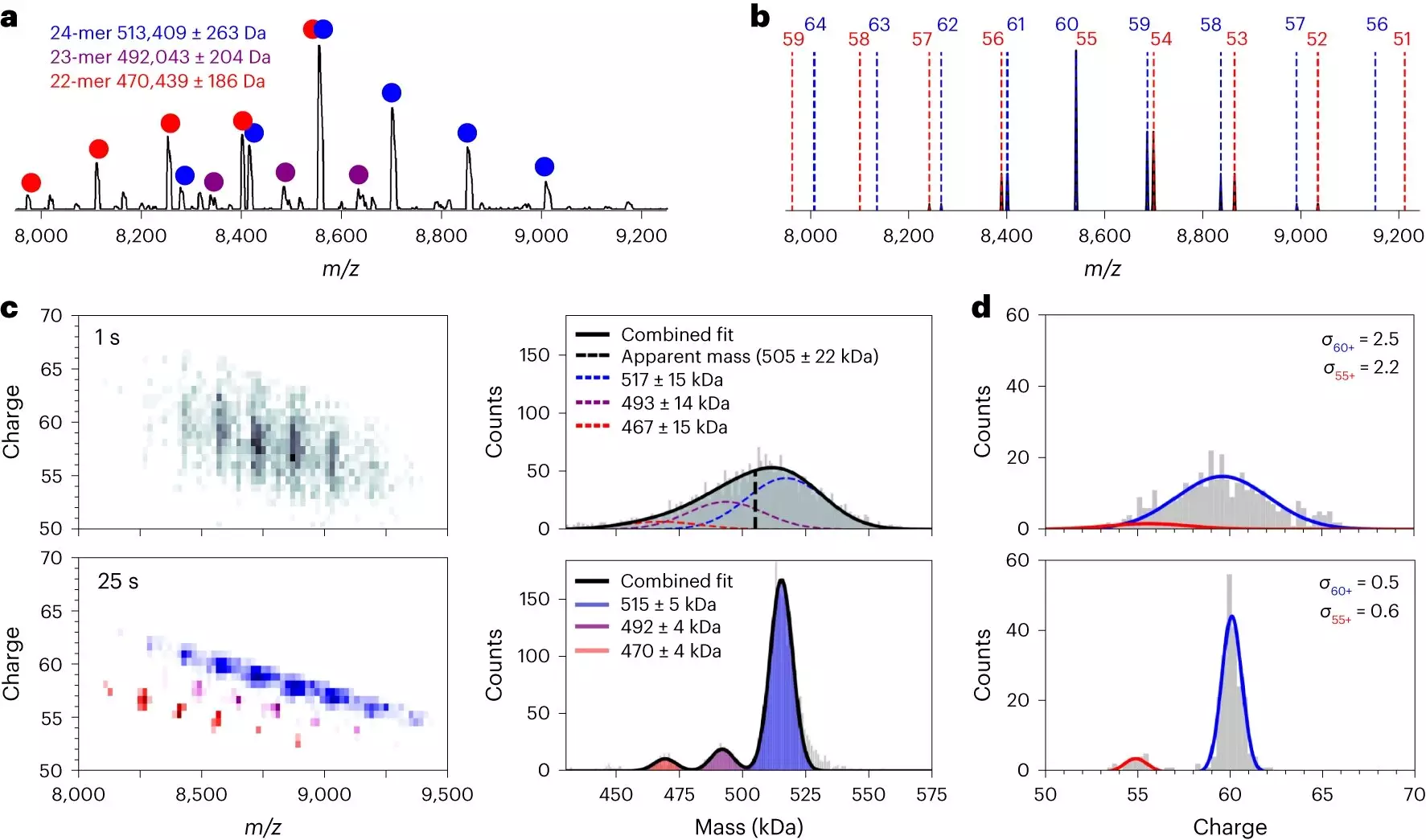In a groundbreaking discovery, a team of chemists led by Prof. Albert Heck has revolutionized the way molecules are analyzed and understood. By enhancing current measuring equipment, the team has successfully trapped and observed individual molecules for an extended period – up to an impressive 25 seconds. This monumental achievement has allowed them to delve deeper into the intricacies of molecules, thus elevating their comprehension of these fundamental building blocks of life.
The precision upgrade achieved by Prof. Heck and his team is akin to measuring a mass difference of one in a million. To put it into perspective, Heck compares it to discerning a missing grain of sugar from a full bag weighing 1 kilogram. This level of precision opens up a realm of possibilities in the field of molecular analysis, with far-reaching implications for various industries.
Traditionally, chemists utilize mass spectrometry to analyze the composition of molecules. While this method offers detailed analyses, it has limitations in studying large molecules due to the interference of numerous trapped molecules. To overcome this obstacle, the team developed a novel approach where individual molecules are trapped in an Orbitrap and subjected to intense spinning. By analyzing the spinning behavior, they can effectively determine the mass and composition of the molecule.
Typically, the conventional method can only record signals for a brief duration, approximately 25 milliseconds. However, through innovative modifications to the data acquisition process, the scientists were able to elongate this observation time to a remarkable 25 seconds. This extended period of observation is crucial in capturing intricate details about the spinning frequency of ions, thereby enhancing the characterization of molecules.
The ability to measure giant molecules with such precision and detail has the potential to catalyze advancements in diverse industries. For instance, in the production of therapeutic molecules like viruses used in gene therapy, this breakthrough could revolutionize the efficiency of the process. Currently, developers of gene therapy viruses face challenges in verifying if the viruses carry the specific gene they are intended to deliver. With only 1 to 2 percent of the produced gene therapy viruses successfully loaded with the desired gene, there is a significant inefficiency in the production process.
Prof. Heck underscores the importance of being able to distinguish between ’empty’ and ‘filled’ viruses in gene therapy. This distinction is crucial for ensuring the efficacy of the therapeutic viruses introduced into patients. By accurately measuring the difference between the two types of viruses, developers can streamline their production processes and increase the success rate of gene therapy treatments.
The breakthrough achieved by Prof. Albert Heck and his team in analyzing and understanding molecules represents a significant leap forward in the field of chemistry. By harnessing the power of precision and extending the observation time of individual molecules, this innovation has the potential to drive advancements in various industries, particularly in the realm of gene therapy. The future of molecular analysis looks brighter and more promising than ever before, thanks to the relentless pursuit of scientific excellence.



Leave a Reply